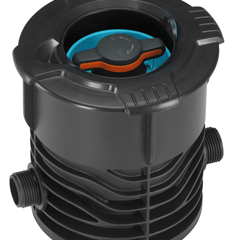Category
Recent Posts
- IWMI appoints Olufunke Cofie as new Africa Director for Research Impact
- IWMI tackles water scarcity in Punjab with groundbreaking GMIS
- Cutting-edge mapping techniques are crucial for managing water storage in South Asia
- [Explainer] What is micro irrigation?
- What the attempts to clean the Seine reveal about water pollution worldwide
Recent Comments

The Ultimate Weed Control Solution

Brands









The Mozambican government has inked a €33.9 million (US$37.1 million) co-financing agreement with the Netherlands government for the second phase of a project to rehabilitate the drainage system of Beira city in central Mozambique.
The city is considered one of the most threatened by climate change in the country and the project aims to increase its resilience to floods.
The Dutch ambassador to Mozambique Elsbeth Akkerman signed the deal with Minister of Public Works, Housing and Water Resources Carlos Mesquita on 1 March.
Albano Carige, president of the Beira municipal council said at the signing ceremony that the project entails the rehabilitation and coating of the drainage system, including construction of a second rainwater retention basin and a 12km drainage ditch.
The US$61.9 million first phase of the Beira drainage rehabilitation project was carried out as part of the World Bank’s US$122.5 million Mozambique Cities and Climate Change Programme, which was completed in 2020.
The work involved developing a strategic masterplan, rehabilitating 11.7km of drainage canals and building a 175,000-cubic-metre rainwater retention basin and a floodgate control system, which was undertaken by China Henan International Cooperation Group (CHICO). In addition, CHICO built a 17-hectare park and 4km of improved natural drainage around the Chiveve River basin.
The Mozambique Cities and Climate Change Programme also provided for the rehabilitation of 2.2km of drainage canals in the capital Maputo, which was carried out by China’s Jiangsu Suzhong Construction Group. The city is prone to recurrent flooding due to inadequate drainage systems and climate change.
To further address these concerns, the World Bank is working on the US$100 million Maputo Urban Transformation Project, which includes the rehabilitation and expansion of drainage system 1 in the city centre as well as improving drainage infrastructure in selected informal settlements. The overall scheme is due to be completed by April 2026.
Specifically, the works in the city centre involve construction of 4km of new rainwater collectors; 20,000 cubic metres of distributed retention and infiltration ponds with green infrastructure; four backflow tidal gates; and four discharge chambers. In addition, 5km of the combined drainage-sanitation network will be rehabilitated.
In the informal settlements, the scheme will finance the building of 24km of macro drainage channels; 75,000 cubic metres of retention ponds; and 90,000 cubic metres of micro drainage and green infrastructure.
On 26 February, Maputo Municipal Council issued a request for proposals to build landmark drainage works on the streets of UFA and Estacio Dias and at Praca 16 de Junho in the Nlhamankulu district. The deadline for submissions is 26 March and the details can be viewed here.
Following this, in March, consultants were invited to express interest in supervising macro drainage works on the streets, with a deadline of 15 March. The invitation can be viewed here.
Apart from drainage works, the Maputo Urban Transformation Project also involves roadworks and solid waste infrastructure improvement, including construction of a sanitary landfill.
Photo: Beira drainage (Source: LinkedIn @ Dutch embassy)







